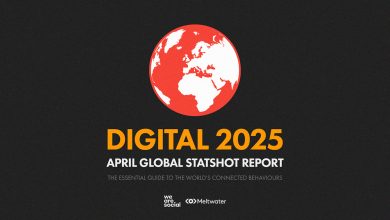MANILA, PHILIPPINES — TransUnion (NYSE: TRU) released new findings around the impact of COVID-19 on personal finances, spending, and debt. Among the key takeaways revealed in the Q4 2021 study is that fewer Filipino households (59%) reported a current decrease in income due to the pandemic compared to the previous quarter’s 64%. Despite that positive direction, more than half (52%) of respondents surveyed said they had cut back on discretionary spending in the last three months. With 52% of respondents ascribing to the belief that access to credit and lending products is important to achieve financial goals, close to half (44%) said they were planning to apply for credit in the next year.
The TransUnion Philippines Consumer Pulse Study surveyed 1,089 adults in the Philippines to discover findings on the financial impact of COVID-19 on consumers. The study was conducted from Nov. 1-8, 2021, with respondents ranging from different Philippine resident demographics from Gen Z (born 1995-2003), Millennials (born 1980-1994), Gen X (born 1965-1979), and Baby Boomers (born 1944-1964).
“From financial health to the disruptions in daily living, the lives of millions of Filipinos have drastically changed and continue to change due to COVID-19,” said Pia Arellano, President and CEO of TransUnion Philippines. “As an ongoing study, TransUnion Philippines continuously strives to develop a comprehensive understanding of the financial impacts of the pandemic as well as to harness the information to better inform consumers, businesses, and other stakeholder decisions as the pandemic continues to impact our daily lives,” Arellano added.
The impact of COVID-19 on household income and bill payments
Close to half (46%; decreased by 8 percentage points from Q3 2021) of respondents surveyed believe their household income (HHI) will decrease in the future due to COVID-19. There is a belief that vaccinations are a possible contributing factor to a growing optimistic economic outlook. Among the 64% of the population who said they had been fully vaccinated, 13% reported never having their HHI decrease due to COVID-19, and they expect less negative impact in the future (44% compared to 50% of those who do not plan on getting vaccinated).
However, about half (46%) of all households expect to be unable to pay their current bills and loans in full. Among payment methods, the most popular ways used to pay current bills and loans are savings (42%) and partial payments (45%). Personal loans (37%), mortgages and home loans (33%), and credit cards (27%) emerged as the top bills and loans consumers who have these bills and loans say they will not be able to pay.
Adjusting attitudes and plans for economic participation
This cautionary attitude towards spending has carried over into Q4 beyond the 52% of those surveyed saying they had cut back on discretionary spending, with 47% of respondents saying they had saved more in an emergency fund in the last three months. In terms of purchasing behavior, e-commerce looks like it may continue its momentum into the New Year with 47% of respondents saying they’ll increase their number of online transactions in the next three months.
There appears to be a large gap in those wanting to access credit compared to receiving it, with 52% saying they believe it’s important to have access to credit and lending products to achieve financial goals but only 35% said they had sufficient access to credit and lending products. At 51%, millennials were the generation who said they plan to apply for credit the most in the next year. In terms of credit monitoring, 93% of respondents believed in the importance of monitoring credit; with 69% of respondents doing so at least once a month.
A focus on fraud
Digital fraud continues to be a significant worry, especially around the holidays, with 95% of consumers saying they were concerned about being victimized by digital fraud during the 2021 holiday season. Half of the respondents surveyed said they had been targets of digital fraud attempts in the last three months. Across generations, Millennials and Gen X were the most targeted at 54% and 52% respectively.
Overall, phishing (44%) and third-party seller scams on legitimate online retail sites (39%) were the two most common tactics reported for digital fraud schemes among consumers who said they had been targeted. Those findings were consistent across the demographics surveyed.
To discover more insights surrounding the financial impact of COVID-19 on Filipino financial behavior, the latest TransUnion Consumer Pulse Study can be found here.










